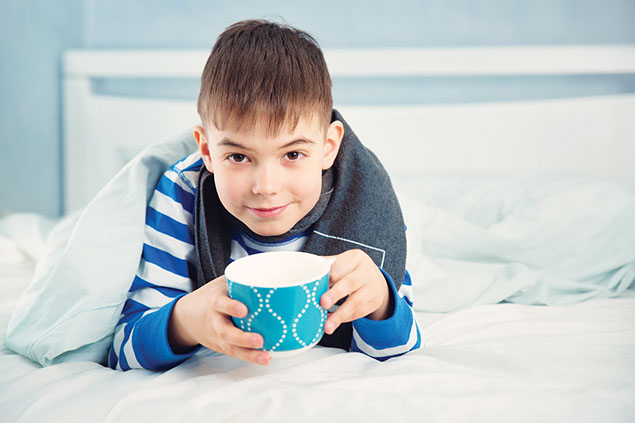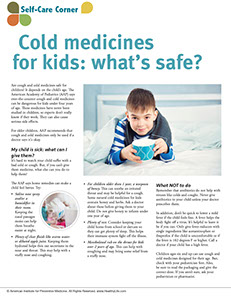SYMPTOM CHECKER
CONDITIONS
Male
Female
Child
Arm, Hand & Shoulder Concerns
Legs & Feet Concerns
Dental & Mouth Concerns
Ear & Nose
Eye Conditions
Head Conditions
Arm, Hand & Shoulder Concerns
Legs & Feet Concerns
Front
Back
Arm, Hand & Shoulder Concerns
Dental & Mouth Concerns
Ear & Nose
Eye Conditions
Head Conditions
Arm, Hand & Shoulder Concerns
Dental & Mouth Concerns
Ear & Nose
Eye Conditions
Head Conditions
Front
Back
Arm, Hand & Shoulder Concerns
Neck Links
Head & Neck Concerns
Arm, Hand & Shoulder Concerns
Neck Links
Head & Neck Concerns
Front
Back
Online Clinic
Wise Healthcare
Cold medicines for kids: what’s safe?
Print on Demand
Are cough and cold medicines safe for children? It depends on the child’s age. The American Academy of Pediatrics (AAP) says over-the-counter cough and cold medicines can be dangerous for kids under four years of age. These medicines have never been studied in children, so experts don’t really know if they work. They can also cause serious side effects.
For older children, AAP recommends that cough and cold medicines only be used if a doctor says it's okay.
My child is sick: what can I give them?
It’s hard to watch your child suffer with a bad cold or cough. But, if you can’t give them medicine, what else can you do to help them?
The AAP says home remedies can make a child feel better. Try:
• Saline nose spray and/or a humidifier in their room. Keeping the nasal passages moist can help them breathe easier at night.
• Plenty of clear fluids like warm water or diluted apple juice. Keeping them hydrated helps thin out secretions in the nose and throat. This may help with a stuffy nose and coughing.
• For children older than 1 year, a teaspoon of honey. This can soothe an irritated throat and may be helpful for a cough. Some natural cold medicines for kids contain honey and herbs. Ask a doctor about these before giving them to your child. Do not give honey to infants under one year of age.
• Plenty of rest. Consider keeping your child home from school or daycare so they can get plenty of sleep. This helps their immune system fight off the illness.
• Mentholated rub on the throat for kids over 2 years of age. This can help with coughing and may bring some relief from a stuffy nose.
What NOT to do
Remember that antibiotics do not help with viruses like colds and coughs. Never give antibiotics to your child unless your doctor prescribes them.
In addition, don’t be quick to lower a mild fever if the child feels fine. A fever helps the body fight off a virus. It’s helpful to leave it be if you can. Only give fever-reducers with single ingredients like acetaminophen or ibuprofen if the child is uncomfortable or if the fever is 102 degrees F or higher. Call a doctor if your child has a high fever.
Children ages six and up can use cough and cold medicines designed for their age. But, check with your pediatrician first. Also, be sure to read the packaging and give the correct dose. If you aren’t sure, ask your pediatrician or pharmacist.
This website is not meant to substitute for expert medical advice or treatment. Follow your doctor’s or health care provider’s advice if it differs from what is given in this guide.
The American Institute for Preventive Medicine (AIPM) is not responsible for the availability or content of external sites, nor does AIPM endorse them. Also, it is the responsibility of the user to examine the copyright and licensing restrictions of external pages and to secure all necessary permission.
The content on this website is proprietary. You may not modify, copy, reproduce, republish, upload, post, transmit, or distribute, in any manner, the material on the website without the written permission of AIPM.
2021 © American Institute for Preventive Medicine - All Rights Reserved. Disclaimer | www.HealthyLife.com
















































